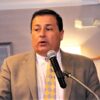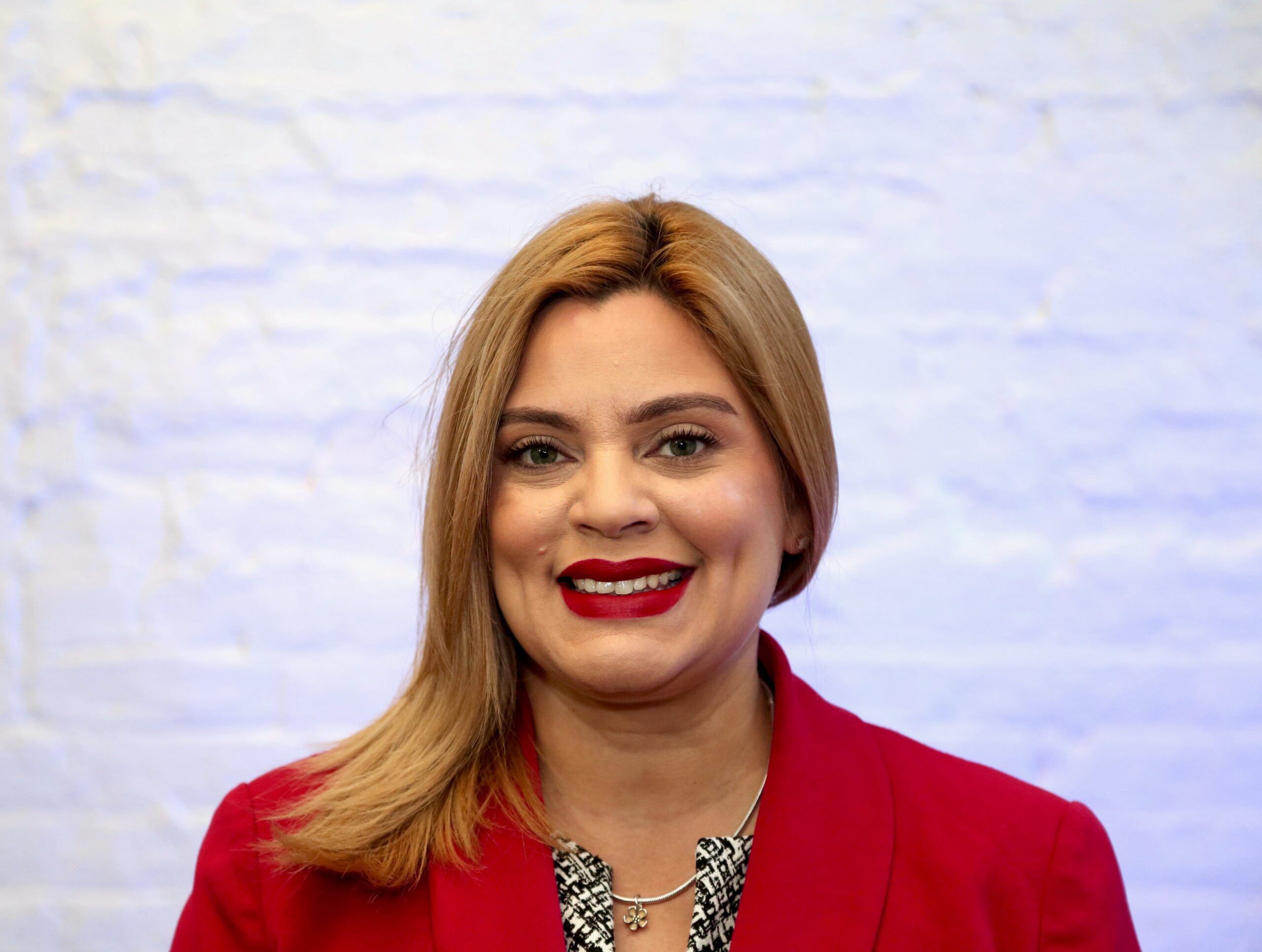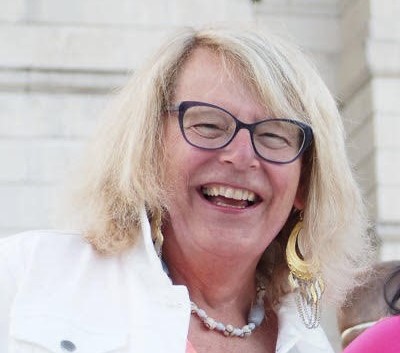
You have been with the WPRI 12 News Team since February 2022 and we will get to that in a moment. But first, tell us a bit about your background. We understand you are originally from Puerto Rico.
I was lucky enough to be born in my favorite place on Earth: Puerto Rico. I grew up in San Juan and attended a bilingual school, which is part of the reason I became so passionate about bilingual storytelling. I also grew up on stage–singing in a choir for years! My dad was born in Cuba and raised in Central America. He’s the most hardworking person I know, building his business from the ground up. My mother, born and raised in PR, is an educator–which is why I have a soft spot for teaching. I moved to Amherst, Mass. in 2018 after Hurricane María to finish my undergraduate degree at UMass. It was my first time living outside the island. This year was the fifth anniversary of my move to the States.
At a very young age, you reported your first story. How old were you and what was the story?
When I was about five, we went to la Feria de Plaza in San Juan. It’s a popular carnival hosted every year. While we were there, an accident happened on the ride next to us. As soon as I got home, I grabbed a karaoke mic and did a “live report” for my family.
Did you report any more as a child?
I crack jokes constantly. So while I was growing up, and well into college, I’d improvise interviews with my friends and family just to bug them. Who knew my goofing around was a prediction of what industry I’d end up in?
Hurricane Maria devastated Puerto Rico in 2017. Did you and your family and friends suffer losses?
We had no electricity for about three months, but we were fortunate to have a generator we could use to make food and keep perishables relatively cool in the fridge. The reality was different for many others. People I know lost their homes or loved ones, with thousands dying as a result of the storm.
Maria also influenced your future career choice. How?
Hurricane María showed me the impact journalism has on lives. El Centro de Periodismo Investigativo’s (CPI) work reporting the deaths from the storm helped reveal the extent of the damage. Two years later, CPI published 889 pages of texts between the governor and his advisors full of insults and lewd language. It prompted island-wide protests that led to the governor’s resignation. Journalism means change and accountability. I wanted to be a part of that.
We understand that you studied environmental and marine science at Woods Hole Oceanographic Institution and the University of Massachusetts, Amherst. What attracted you to that field?
My grandfather played “Free Willy” [the movie] for me when I was young, and I’ve been hooked ever since! Whales, sharks, manatees, or pretty much anything that moves underwater has always enthralled me–perhaps because I grew up on a tropical island.
When did you decide to switch from science to journalism and where did you study?
Hurricane María prompted me to explore journalism, which led me to join the Massachusetts Daily Collegian at UMass. I was hesitant about reporting at first, so I became a Spanish-language translator for the paper. I’d say that’s when I became obsessed with using translations to increase access to information. The more languages you provide news in, the more people you reach! When I graduated from UMass, I realized that while I loved marine science, I could also have a significant impact in journalism. I kept thinking back to the Collegian’s newsroom and how much I loved writing. I became more informed about politics and government. Journalism was how I merged those two interests! After figuring that out, I applied to grad school and ended up at Syracuse University in the Magazine, News, and Digital Journalism program. One of the best decisions I’ve ever made.
Did you work in journalism before coming to Channel 12?
Channel 12 was my first job in the industry after grad school! I started here as a digital reporter, both writing for the website and fronting stories on camera. This month, I transitioned to co-anchor of our expanded Saturday morning show and anchor of our first-ever Spanish-language newscast. Loving my time on the desk so far and can’t wait to deliver the news in my native language to the local Latino community.
One of your hallmarks at 12 has been reporting on underrepresented communities. Why is that so important for Rhode Island – and the country in general?
It always takes me by surprise to see coverage of underrepresented communities in mainstream media. That surprise means we’re not covering them enough. We should be able to see our faces and names in the news every day. Access to information is crucial for sustainable democracy and for individuals to develop informed opinions. Access to me means engaging ALL communities in EVERY language. I’m hoping to contribute to that through our upcoming Spanish-language digital show.
Can you give us a few notable examples of your work?
I’m proudest of three pieces: a 12-minute documentary about shark research in Rhode Island that I co-produced (and went shark tagging for!) with meteorologist T.J. Del Santo; a Washington Post story I wrote about menstrual injustices in Puerto Rico; and a Refinery29 story I wrote exploring the gatekeeping of Puerto Rican identity and how it’s tied to language.
Speak to why journalism – broadcast, print and other forms – is critical to the health of a democracy.
Journalism affects public opinion which is reflected at the ballot box. It can influence if your potholes get fixed, if legislation is passed, and if those most in need get support. I’ve always loved WaPo’s “Democracy dies in darkness” slogan–because it truly does. Access to information leads to change.
What advice would you have for young people – in college, high school or even younger – who have an interest in journalism?
Always ask for feedback and take it gracefully. Never stop wanting to learn–whether you’re one, 10, or 40 years into the business. Always be willing to collaborate with others–it will make you a better reporter. And always be willing to pay that forward.
Now that you are a Rhode Islander, do you ever get back to Puerto Rico?
I go whenever I can take days off. That’s where all my family is and my dog, Goya. But I’m grateful to live in a place that reminds me so much of home: the Ocean State has superb food and the best beaches I’ve found in the U.S. (in the opinion of a Caribbean beach connoisseur like myself). Special shout out to my favorite: Blue Shutters Beach.
What is it like working with such distinguished broadcast journalists as Kim Kalunian, Ted Nesi, Tim White, and the many other Murrow and Emmy Award-winning journalists at 12?
I’m a nerd at heart and so are they, so learning from them is one of my favorite parts of my job. From watching how Kim and Shannon anchor, to bugging Ted about the best way to bring a political story to life, to making Tim and Eli parse out legal jargon. They’re a wealth of knowledge. The team at channel 12 is always willing to help, always humble, always looking to report the facts, and always willing to give feedback and advice. Couldn’t ask for better –and funnier–colleagues! But aside from the folks you see on TV, I’ve gotten to work closely with the best web team in the market. They’re the unsung heroes of our news operation.






